LEGACY
Child Welfare
1. We call upon the federal, provincial, territorial, and Aboriginal governments to commit to reducing the number of Aboriginal children in care.
2. We call upon the federal government, in collaboration with the provinces and territories, to prepare and publish annual reports on the number of Aboriginal children who are in care, compared with non-Aboriginal children, as well as the reasons for apprehension, the total spending on preventive and care services by child-welfare agencies, and the effectiveness of various interventions.
3. We call upon all levels of government to fully implement Jordan’s Principle.
4. We call upon the federal government to enact Aboriginal child-welfare legislation that establishes national standards for Aboriginal child apprehension and custody cases.
5. We call upon the federal, provincial, territorial, and Aboriginal governments to develop culturally appropriate parenting programs for Aboriginal families.
Education
6. We call upon the Government of Canada to repeal Section 43 of the Criminal Code of Canada.
7. We call upon the federal government to develop with Aboriginal groups a joint strategy to eliminate educational and employment gaps between Aboriginal and non-Aboriginal Canadians.
8. We call upon the federal government to eliminate the discrepancy in federal education funding for First Nations children being educated on reserves and those First Nations children being educated off reserves.
9. We call upon the federal government to prepare and publish annual reports comparing funding for the education of First Nations children on and off reserves, as well as educational and income attainments of Aboriginal peoples in Canada compared with non-Aboriginal people.
10. We call on the federal government to draft new Aboriginal education legislation with the full participation and informed consent of Aboriginal peoples.
11. We call upon the federal government to provide adequate funding to end the backlog of First Nations students seeking a post-secondary education.
12. We call upon the federal, provincial, territorial, and Aboriginal governments to develop culturally appropriate early childhood education programs for Aboriginal families.
Language and Culture
13. We call upon the federal government to acknowledge that Aboriginal rights include Aboriginal language rights.
14. We call upon the federal government to enact an Aboriginal Languages Act.
15. We call upon the federal government to appoint, in consultation with Aboriginal groups, an Aboriginal Languages Commissioner.
16. We call upon post-secondary institutions to create university and college degree and diploma programs in Aboriginal languages.
17. We call upon all levels of government to enable residential school survivors and their families to reclaim names changed by the residential school system by waiving administrative costs for a period of five years for the name-change process and the revision of official identity documents, such as birth certificates, passports, driver’s licenses, health cards, status cards, and social insurance numbers.
Health
18. We call upon the federal, provincial, territorial, and Aboriginal governments to acknowledge that the current state of Aboriginal health in Canada is a direct result of previous Canadian government policies, including residential schools, and to recognize and implement the health-care rights of Aboriginal people as identified in international law, constitutional law, and under the Treaties.
19. We call upon the federal government, in consultation with Aboriginal peoples, to establish measurable goals to identify and close the gaps in health outcomes between Aboriginal and non-Aboriginal communities, and to publish annual progress reports and assess long-term trends.
20. In order to address the jurisdictional disputes concerning Aboriginal people who do not reside on reserves, we call upon the federal government to recognize, respect, and address the distinct health needs of the Métis, Inuit, and off-reserve Aboriginal peoples.
21. We call upon the federal government to provide sustainable funding for existing and new Aboriginal healing centres to address the physical, mental, emotional, and spiritual harms caused by residential schools, and to ensure that the funding of healing centres in Nunavut and the Northwest Territories is a priority.
22. We call upon those who can effect change within the Canadian health-care system to recognize the value of Aboriginal healing practices and use them in the treatment of Aboriginal patients in collaboration with Aboriginal healers and Elders where requested by Aboriginal patients.
23. We call upon all levels of government to: increase the number of Aboriginal professionals working in the health-care field, ensure the retention of Aboriginal health-care providers in Aboriginal communities and provide cultural competency training for all health-care professionals …
24. We call upon medical and nursing schools in Canada to require all students to take a course dealing with Aboriginal health issues, including the history and legacy of residential schools, the United Nations Declaration on the Rights of Indigenous Peoples, Treaties and Aboriginal rights, and Indigenous teachings and practices.
Justice
25. We call upon the federal government to establish a written policy that reaffirms the independence of the RCMP to investigate crimes in which the government has its own interest as a potential or real party in civil litigation.
26. We call upon the federal, provincial, and territorial governments to review and amend their respective statutes of limitations to ensure that they conform with the principle that governments and other entities cannot rely on limitation defences to defend legal actions of historical abuse brought by Aboriginal people.
27. We call upon the Federation of Law Societies of Canada to ensure that lawyers receive appropriate cultural competency training, which includes the history and legacy of residential schools, the United Nations Declaration on the Rights of Indigenous Peoples, Treaties and Aboriginal rights, Indigenous law, and Aboriginal–Crown relations.
28. We call upon law schools in Canada to require all law students to take a course in Aboriginal people and the law, which includes the history and legacy of residential schools, the United Nations Declaration on the Rights of Indigenous Peoples, Treaties and Aboriginal rights, Indigenous law, and Aboriginal–Crown relations.
29. We call upon the parties and, in particular, the federal government, to work collaboratively with plaintiffs not included in the Indian Residential Schools Settlement Agreement to have disputed legal issues determined expeditiously on an agreed set of facts.
30. We call upon federal, provincial, and territorial governments to commit to eliminating the overrepresentation of Aboriginal people in custody over the next decade, and to issue detailed annual reports that monitor and evaluate progress in doing so.
31. We call upon the federal, provincial, and territorial governments to provide sufficient and stable funding to implement and evaluate community sanctions that will provide realistic alternatives to imprisonment for Aboriginal offenders and respond to the underlying causes of offending.
32. We call upon the federal government to amend the Criminal Code to allow trial judges, upon giving reasons, to depart from mandatory minimum sentences and restrictions on the use of conditional sentences.
33. We call upon the federal, provincial, and territorial governments to recognize as a high priority the need to address and prevent Fetal Alcohol Spectrum Disorder and to develop, in collaboration with Aboriginal people, FASD preventive programs that can be delivered in a culturally appropriate manner.
34. We call upon the governments of Canada, the provinces, and territories to undertake reforms to the criminal justice system to better address the needs of offenders with Fetal Alcohol Spectrum Disorder.
35. We call upon the federal government to eliminate barriers to the creation of additional Aboriginal healing lodges within the federal correctional system.
36. We call upon the federal, provincial, and territorial governments to work with Aboriginal communities to provide culturally relevant services to inmates on issues such as substance abuse, family and domestic violence, and overcoming the experience of having been sexually abused.
37. We call upon the federal government to provide more supports for Aboriginal programming in halfway houses and parole services.
38. We call upon the federal, provincial, territorial, and Aboriginal governments to commit to eliminating the overrepresentation of Aboriginal youth in custody over the next decade.
39. We call upon the federal government to develop a national plan to collect and publish data on the criminal victimization of Aboriginal people, including data related to homicide and family violence victimization.
40. We call on all levels of government, in collaboration with Aboriginal people, to create adequately funded and accessible Aboriginal-specific victim programs and services with appropriate evaluation mechanisms.
41. We call upon the federal government, in consultation with Aboriginal organizations, to appoint a public inquiry into the causes of, and remedies for, the disproportionate victimization of Aboriginal women and girls. The inquiry’s mandate would include an investigation into missing and murdered Aboriginal women and girls and links to the intergenerational legacy of residential schools.*
42. We call upon the federal, provincial, and territorial governments to commit to the recognition and implementation of Aboriginal justice systems in a manner consistent with the Treaty and Aboriginal rights of Aboriginal peoples, the Constitution Act, 1982, and the United Nations Declaration on the Rights of Indigenous Peoples, endorsed by Canada in November 2012.
RECONCILIATION
Canadian governments, UN Declaration on the Rights of Indigenous Peoples
43. We call upon federal, provincial, territorial, and municipal governments to fully adopt and implement the United Nations Declaration on the Rights of Indigenous Peoples as the framework for reconciliation.
44. We call upon the Government of Canada to develop a national action plan, strategies, and other concrete measures to achieve the goals of the United Nations Declaration on the Rights of Indigenous Peoples.
Royal Proclamation and Covenant of Reconciliation
45. We call upon the Government of Canada, on behalf of all Canadians, to jointly develop with Aboriginal peoples a Royal Proclamation of Reconciliation to be issued by the Crown.
46. We call upon the parties to the Indian Residential Schools Settlement Agreement to develop and sign a Covenant of Reconciliation.
47. We call upon federal, provincial, territorial, and municipal governments to repudiate concepts used to justify European sovereignty over Indigenous peoples and lands, such as the Doctrine of Discovery and terra nullius, and to reform those laws, government policies, and litigation strategies that continue to rely on such concepts.
Settlement Agreement Parties and the United Nations
Declaration on the Rights of Indigenous Peoples
48. We call upon the church parties to the Settlement Agreement, and all other faith groups and interfaith social justice groups in Canada who have not already done so, to formally adopt and comply with the principles, norms, and standards of the United Nations Declaration on the Rights of Indigenous Peoples as a framework for reconciliation.
49. We call upon all religious denominations and faith groups who have not already done so to repudiate concepts used to justify European sovereignty over Indigenous lands and peoples, such as the Doctrine of Discovery and terra nullius.
Equity for Aboriginal People in the Legal System.
50. In keeping with the United Nations Declaration on the Rights of Indigenous Peoples, we call upon the federal government, in collaboration with Aboriginal organizations, to fund the establishment of Indigenous law institutes for the development, use, and understanding of Indigenous laws and access to justice in accordance with the unique cultures of Aboriginal peoples in Canada.
51. We call upon the Government of Canada, as an obligation of its fiduciary responsibility, to develop a policy of transparency by publishing legal opinions it develops and upon which it acts or intends to act, in regard to the scope and extent of Aboriginal and Treaty rights.
52. We call upon the Government of Canada, provincial and territorial governments, and the courts to adopt “acceptance & burden of proof” principles on Aboriginal title claims.
National Council for Reconciliation
53. We call upon the Parliament of Canada, in consultation and collaboration with Aboriginal peoples, to enact legislation to establish a National Council for Reconciliation. The legislation would establish the council as an independent, national, oversight body with membership jointly appointed by the Government of Canada and national Aboriginal organizations, and consisting of Aboriginal and non-Aboriginal members.
54. We call upon the Government of Canada to provide multi-year funding for the National Council for Reconciliation to ensure that it has the financial, human, and technical resources required to conduct its work, including the endowment of a National Reconciliation Trust to advance the cause of reconciliation.
55. We call upon all levels of government to provide annual reports or any current data requested by the National Council for Reconciliation so that it can report on the progress towards reconciliation.
56. We call upon the prime minister of Canada to formally respond to the report of the National Council for Reconciliation by issuing an annual “State of Aboriginal Peoples” report, which would outline the government’s plans for advancing the cause of reconciliation.
Professional Development and Training for Public Servants
57. We call upon federal, provincial, territorial, and municipal governments to provide education to public servants on the history of Aboriginal peoples, including the history and legacy of residential schools, the United Nations Declaration on the Rights of Indigenous Peoples, Treaties and Aboriginal rights, Indigenous law, and Aboriginal–Crown relations. This will require skills-based training in intercultural competency, conflict resolution, human rights, and anti-racism.
Church Apologies and Reconciliation
58. We call upon the Pope to issue an apology to survivors, their families, and communities for the Roman Catholic Church’s role in the spiritual, cultural, emotional, physical, and sexual abuse of First Nations, Inuit, and Métis children in Catholic-run residential schools.
59. We call upon church parties to the settlement agreement to develop ongoing education strategies to ensure that their respective congregations learn about their church’s role in colonization, the history and legacy of residential schools, and why apologies to former residential school students, their families, and communities were necessary.
60. We call upon leaders of the church parties to the settlement agreement and all other faiths, in collaboration with Indigenous spiritual leaders, survivors, schools of theology, seminaries, and other religious training centres, to develop and teach curriculum for all student clergy, and all clergy and staff who work in Aboriginal communities, on the need to respect Indigenous spirituality in its own right, the history and legacy of residential schools and the roles of the church parties in that system, the history and legacy of religious conflict in Aboriginal families and communities, and the responsibility that churches have to mitigate such conflicts and prevent spiritual violence.
61. We call upon church parties to the settlement agreement, in collaboration with survivors and representatives of Aboriginal organizations, to establish permanent funding to Aboriginal people for healing, language, and reconciliation projects.
Education for Reconciliation
62. We call upon the federal, provincial, and territorial governments, in consultation and collaboration with survivors, Aboriginal peoples, and educators.
63. We call upon the Council of Ministers of Education, Canada to maintain an annual commitment to Aboriginal education.
64. We call upon all levels of government that provide public funds to denominational schools to require such schools to provide an education on comparative religious studies, which must include a segment on Aboriginal spiritual beliefs and practices developed in collaboration with Aboriginal elders.
65. We call upon the federal government, through the Social Sciences and Humanities Research Council, and in collaboration with Aboriginal peoples, post-secondary institutions and educators, and the National Centre for Truth and Reconciliation and its partner institutions, to establish a national research program with multi-year funding to advance understanding of reconciliation.
Youth Programs
66. We call upon the federal government to establish multi-year funding for community-based youth organizations to deliver programs on reconciliation, and establish a national network to share information and best practices.
Museums and Archives
67. We call upon the federal government to provide funding to the Canadian Museums Association to undertake, in collaboration with Aboriginal peoples, a national review of museum policies and best practices to determine the level of compliance with the United Nations Declaration on the Rights of Indigenous Peoples and to make recommendations.
68. We call upon the federal government, in collaboration with Aboriginal peoples, and the Canadian Museums Association to mark the 150th anniversary of Canadian Confederation in 2017 by establishing a dedicated national funding program for commemoration projects on the theme of reconciliation.*
69. We call upon Library and Archives Canada to fully adopt and implement the United Nations Declaration on the Rights of Indigenous Peoples, ensure records access, and add resources.
70. We call upon the federal government to provide funding to the Canadian Association of Archivists to undertake, in collaboration with Aboriginal peoples, a national review of archival policies and best practices.
Missing Children and Burial Information
71. We call upon all chief coroners and provincial vital statistics agencies that have not provided to the Truth and Reconciliation Commission of Canada their records on the deaths of Aboriginal children in the care of residential school authorities to make these documents available to the National Centre for Truth and Reconciliation.
72. We call upon the federal government to allocate sufficient resources to the National Centre for Truth and Reconciliation to allow it to develop and maintain the National Residential School Student Death Register established by the Truth and Reconciliation Commission of Canada.
73. We call upon the federal government to work with churches, Aboriginal communities, and former residential school students to establish and maintain an online registry of residential school cemeteries, including, where possible, plot maps showing the location of deceased residential school children.
74. We call upon the federal government to work with the churches and Aboriginal community leaders to inform the families of children who died at residential schools of the child’s burial location, and to respond to families’ wishes for appropriate commemoration ceremonies and markers, and reburial in home communities where requested.
75. We call upon the federal government to work with provincial, territorial, and municipal governments, churches, Aboriginal communities, former residential school students, and current landowners to develop and implement strategies and procedures for the ongoing identification, documentation, maintenance, commemoration, and protection of residential school cemeteries or other sites at which residential school children were buried.
76. We call upon the parties engaged in the work of documenting, maintaining, commemorating, and protecting residential school cemeteries to adopt principles and protocols.
National Centre for Truth and Reconciliation
77. We call upon provincial, territorial, municipal, and community archives to work collaboratively with the National Centre for Truth and Reconciliation to identify and collect copies of all records relevant to the history and legacy of the residential school system, and to provide these to the National Centre for Truth and Reconciliation.
78. We call upon the Government of Canada to commit to making a funding contribution of $10 million over seven years to the National Centre for Truth and Reconciliation, plus an additional amount to assist communities to research and produce histories of their own residential school experience and their involvement in truth, healing, and reconciliation.
Commemoration
79. We call upon the federal government, in collaboration with survivors, Aboriginal organizations, and the arts community, to develop a reconciliation framework for Canadian heritage and commemoration.
80. We call upon the federal government, in collaboration with Aboriginal peoples, to establish, as a statutory holiday, a National Day for Truth and Reconciliation to honour Survivors, their families, and communities, and ensure that public commemoration of the history and legacy of residential schools remains a vital component of the reconciliation process.*
81. We call upon the federal government, in collaboration with survivors and their organizations, and other parties to the Settlement Agreement, to commission and install a publicly accessible, highly visible, Residential Schools National Monument in the city of Ottawa to honour Survivors and all the children who were lost to their families and communities.
82. We call upon provincial and territorial governments, in collaboration with Survivors and their organizations, and other parties to the Settlement Agreement, to commission and install a publicly accessible, highly visible, Residential Schools Monument in each capital city to honour Survivors and all the children who were lost to their families and communities.
83. We call upon the Canada Council for the Arts to establish, as a funding priority, a strategy for Indigenous and non-Indigenous artists to undertake collaborative projects and produce works that contribute to the reconciliation process.
84. We call upon the federal government to restore and increase funding to the CBC/ Radio-Canada, to enable Canada’s national public broadcaster to support reconciliation, and be properly reflective of the diverse cultures, languages, and perspectives of Aboriginal peoples, including, but not limited to …
85. We call upon the Aboriginal Peoples Television Network, as an independent non-profit broadcaster with programming by, for, and about Aboriginal peoples, to support reconciliation, including but not limited to …
86. We call upon Canadian journalism programs and media schools to require education for all students on the history of Aboriginal peoples, including the history and legacy of residential schools, the United Nations Declaration on the Rights of Indigenous Peoples, Treaties and Aboriginal rights, Indigenous law, and Aboriginal–Crown relations.
Sports and Reconciliation
87. We call upon all levels of government, in collaboration with Aboriginal peoples, sports halls of fame, and other relevant organizations, to provide public education that tells the national story of Aboriginal athletes in history.
88. We call upon all levels of government to take action to ensure long-term Aboriginal athlete development and growth, and continued support for the North American Indigenous Games, including funding to host the games and for provincial and territorial team preparation and travel.
89. We call upon the federal government to amend the Physical Activity and Sport Act to support reconciliation by ensuring that policies to promote physical activity as a fundamental element of health and well-being, reduce barriers to sports participation, increase the pursuit of excellence in sport, and build capacity in the Canadian sport system, are inclusive of Aboriginal peoples.
90. We call upon the federal government to ensure that national sports policies, programs, and initiatives are inclusive of Aboriginal peoples, including, but not limited to …
91. We call upon the officials and host countries of international sporting events such as the Olympics, Pan Am, and Commonwealth games to ensure that Indigenous peoples’ territorial protocols are respected, and local Indigenous communities are engaged in all aspects of planning and participating in such events.
Business and Reconciliation
92. We call upon the corporate sector in Canada to adopt the United Nations Declaration on the Rights of Indigenous Peoples as a reconciliation framework and to apply its principles, norms, and standards to corporate policy and core operational activities involving Indigenous peoples and their lands and resources.
Newcomers to Canada
93. We call upon the federal government, in collaboration with the national Aboriginal organizations, to revise the information kit for newcomers to Canada and its citizenship test to reflect a more inclusive history of the diverse Aboriginal peoples of Canada, including information about the Treaties and the history of residential schools.
94. We call upon the government of Canada to replace the oath of citizenship with the following: “I swear (or affirm) that I will be faithful and bear true allegiance to His Majesty King Charles III, King of Canada, his heirs and successors, and that I will faithfully observe the laws of Canada including Treaties with Indigenous Peoples, and fulfil my duties as a Canadian citizen.”
Now you know.
Check out How Was Your Week, Honey? Episode #348: Too Karen for Karen HERE! This week, we get together to discuss: Fall, Dr’s, the crawl space, tipping, Canadian lingo, Kristin fights, & Songs of the Week.
I have been craving good Asian takeout lately but sadly I find that one type of food to be really lacking in my small city. We try to make our own, but a lot of the times we find that everything has the same flavour, salty and soy saucey 😜😂. I have found a few dishes that we LOVE though and this will be added to that list! It wasn’t sweet, or sour, or spicy… it was rich and smooth and tender and crispy and SO darn good! It would be a perfect dish to add to other Asian dishes for a Lunar New Year party!
Moo Goo Gai Pan
Adapted from Dinner At The Zoo
1 lb chicken breasts, thinly sliced
1 egg white
2 tablespoons + 1 teaspoon of cornstarch, divided
1 tablespoon vegetable oil, divided
2-3 cloves garlic, minced
1 inch ginger, minced
2 cups mushrooms, sliced
1 cup of snow peas
1/2 cup carrots, thinly sliced
1 can of sliced water chestnuts, drained
3/4 cup chicken stock
1 1/2 teaspoons sugar
1 tablespoon soy sauce
1 1/2 teaspoons sesame oil
salt and pepper to taste
toasted sesame seeds, garnish
In a medium bowl whisk together the egg white and 1 tablespoon of cornstarch. Add the chicken slices and toss to coat. Refrigerate for 30 minutes, then strain and discard any excess liquid.
In a large pan, heat 1 teaspoon of oil over medium high heat. Add the carrots and 1 tablespoon of water and cook 2-3 minutes, stirring constantly. Add the mushrooms and cook for 3-4 minutes or until mushrooms are browned and tender.
Add the peas and cook 1-2 minutes more or until tender. Stir in the water chestnuts. Season the vegetables to taste with salt and pepper. Remove the vegetables from the pan and place on a plate. Cover the plate with foil to keep warm.
Heat the remaining 2 teaspoons of oil over medium high heat. Add the the chicken to the pan and season with salt and pepper to taste. Cook, stirring occasionally, until chicken is cooked through, 3-4 minutes. Add the garlic and ginger and cook for 30 seconds more.
In a small bowl whisk together the chicken stock, sugar, soy sauce and sesame oil. Whisk in 1 tablespoon + 1 teaspoon of cornstarch.

Serve with rice and top with toasted sesame seeds.
This was a week of recovering and getting back into our groove of school, band, reading some good books, Orange Shirt Day, and dinner at Grandma and Grandpa’s. We ended the week with sleepover, SBean and her ESBesty while HBear and Ninja golfed with Grandma and Grandpa.
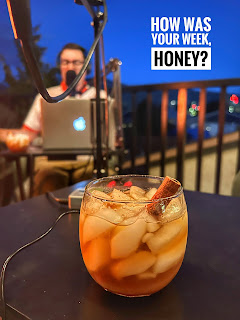
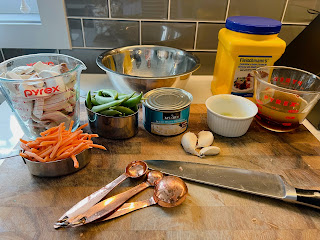








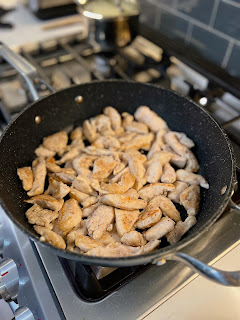

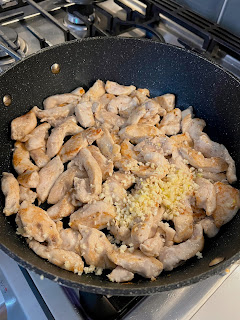




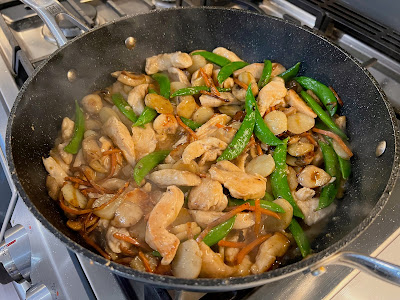














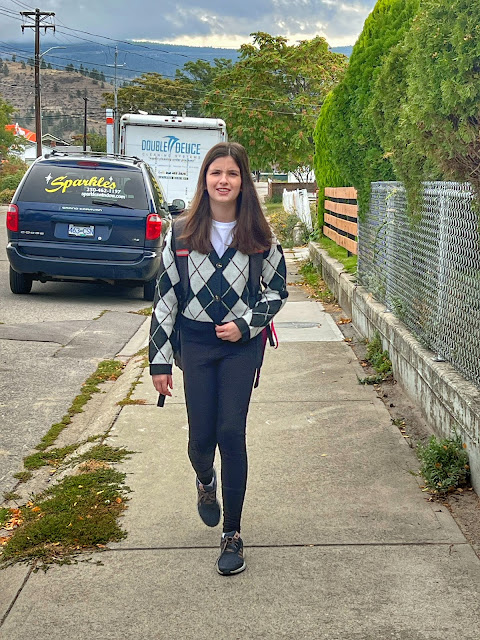

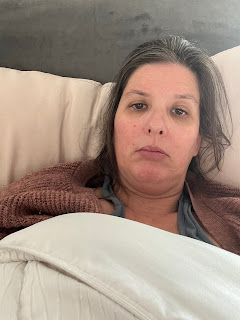
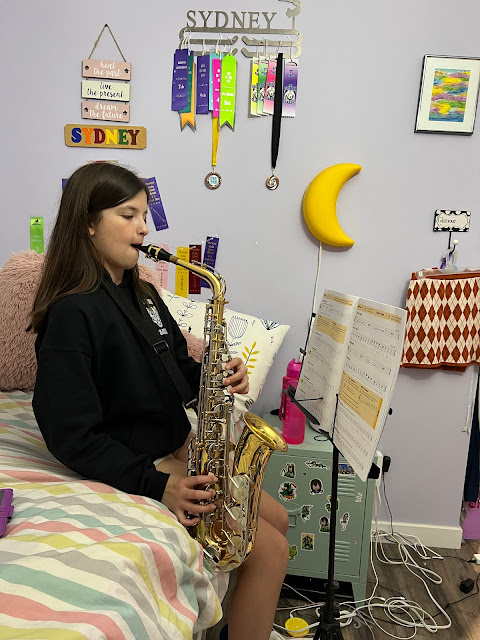
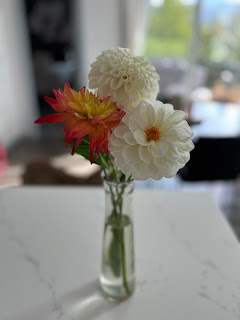


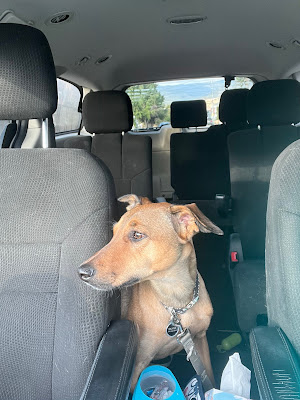
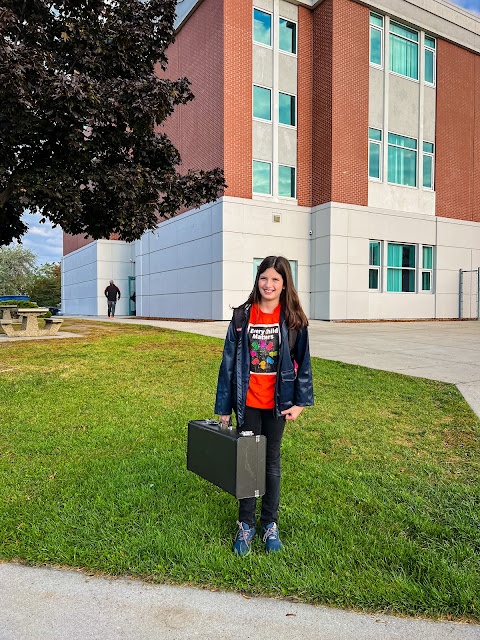



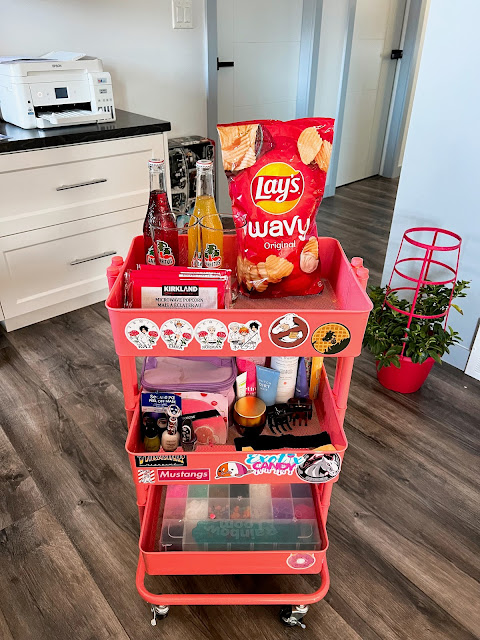
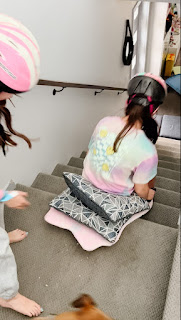
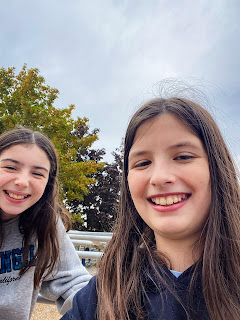
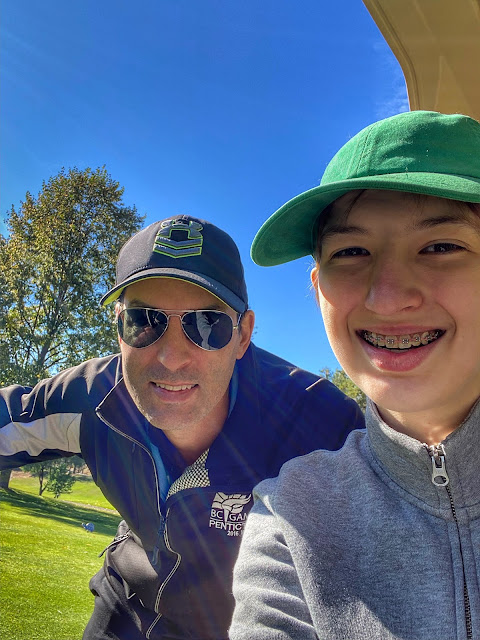
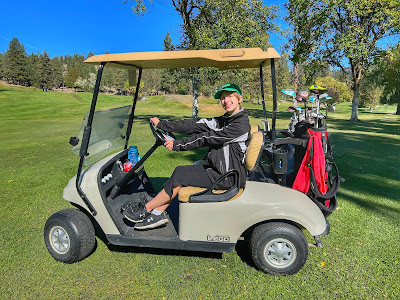
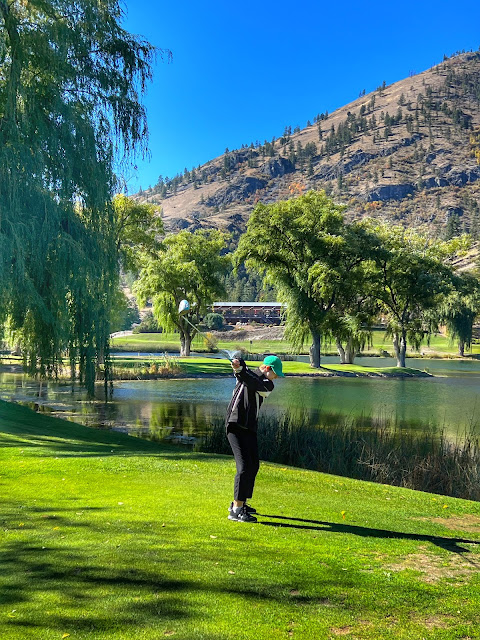





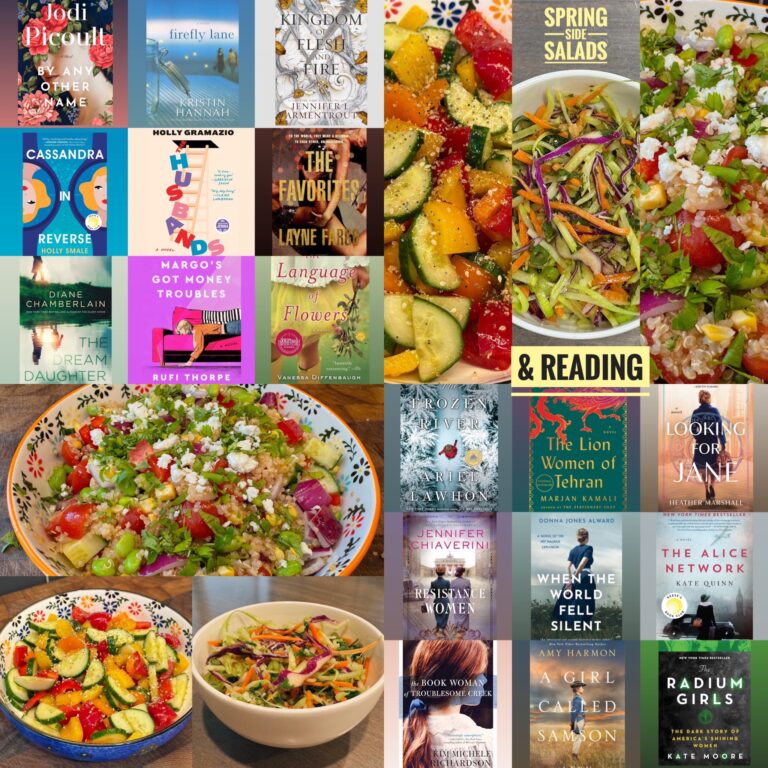



1 thought on “Truth & Reconciliation & Moo Goo Gai Pan”
Wow, now I know for sure. I appreciate you sharing this information. Your Moo Goo Gi Pan sounds fantastic!
Visiting today from SSPS 281 #151